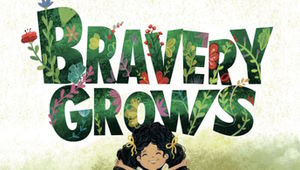Blog
A Parent Perspective: James and Esther

How we discovered that our daughter Rachel had selective mutism: Our diagnosis story
“Rachel is so adorable. And aww…she’s so shy.” That was how most people endearingly described Rachel when they first met her. Rachel was born full-term and healthy. She was happy at home and acted like any other child, talking and singing at two years old. We had always assumed Rachel was just naturally quiet and would grow out of it… someday.
Two months after Rachel entered preschool, her director and teachers asked to meet with us. They asked, “Does Rachel speak yet?” That question hit us hard. We were so shocked to find out Rachel had never spoken a word to anyone at school and often played alone by herself.
At the school’s recommendation, we had Rachel evaluated. After multiple visits with professionals including pediatric neurologists and psychologists, Rachel was given a formal diagnosis: selective mutism and anxiety disorder. We then realized that Rachel was silently facing an extreme form of anxiety that made it impossible for her to speak with others and make friends. It was more than just “shyness.” Rachel was anxious and impaired outside of her home—she would freeze and shut down.
How our family helped Rachel with her treatment
After the doctors gave Rachel her diagnosis, we were finally able to get her the treatment and help she needed. Rachel received services from Preschool Special Education (CPSE) and Individualized Education Program (IEP) to help her navigate through school activities and social interactions. She also had weekly sessions with a social worker at home.
The Selective Mutism Association (SMA) was an incredible resource for us. They provided us with invaluable contacts and toolkits that empowered us to help Rachel find her voice. We signed Rachel up for all kinds of social events and hosted fun play dates to expose Rachel to new people and environments. It was very difficult and awkward at first, as Rachel remained mute all the time. Her friends often questioned why she did not talk. We utilized strategies shared by selective mutism professionals to help support Rachel and make her feel comfortable. Over two to three years, with consistent exposure and counseling, Rachel started to learn to cope with her anxiety and was able to develop meaningful friendships with her peers.
What we found most helpful for Rachel
Finding Rachel’s passion and using her strengths to help her build self-confidence was most helpful. Rachel always had a love for performing—singing, acting, piano, and modeling, but found it difficult to express her special talents in front of others as a result of her struggles with selective mutism and anxiety. Knowing how much Rachel enjoyed performing, we enrolled her in runway modeling, where she could be on stage and shine without having to say a word. It proved to be a huge breakthrough for her. She felt so positive about herself after winning her first runway modeling competition and earning the coveted spot to walk at New York Fashion Week.
Through hard work and perseverance, Rachel has gone from being mute to being a professional artist. She played the lead role on a Broadway National Musical Tour and toured the country, performing at some of the most prestigious venues including Carnegie Hall in New York City, The Fox Theater in Detroit, and The Smith Center in Las Vegas. Today, Rachel can be seen on television and in the news. She has even lent her voice to several commercials and animated characters. The thrill of performing kept Rachel away from her anxiety and transformed her!
How we help Rachel today if she goes through a period of anxiety or nervousness
Rachel realizes that anxiety or nervousness is normal for everyone and is part of everyday life. Through counseling, Rachel has learned to cope with challenging situations. She tells herself, “I can do this!” during challenging and stressful moments. Our family showers Rachel with lots of love and affection so she knows she has a strong support system she can lean on.
Driven by her personal experiences, Rachel feels empathy for kids and families struggling with selective mutism. Recently, she had the opportunity to perform at camps for youths with SM and found it very therapeutic. She often reminds herself of how blessed she is to be able to use her newly found voice and talents to inspire others to do the same!
Advice we have for individuals and families dealing with SM
Rachel was very fortunate to be diagnosed at a young age and got all the treatment she needed. Selective mutism is nothing to be ashamed of and early intervention really helps. In fact, many people with SM have extraordinary gifts and talents. Dealing with selective mutism is very hard, but please know you are not alone. There are many professionals, communities, and resources out there to support individuals and families struggling with SM. Last but not least… never give up!
Rachel says: “I found my voice. And you can too!”




